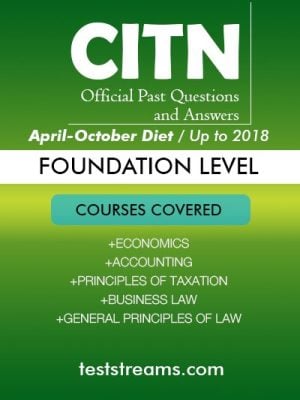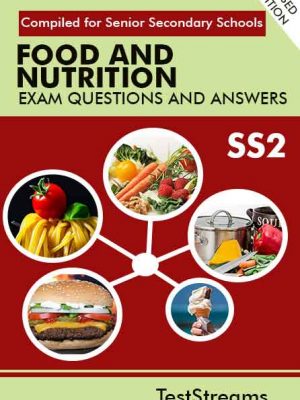Preparing for an aptitude test can feel overwhelming, especially if you’re unsure where to start. Aptitude tests evaluate your logical reasoning, numerical, verbal, and sometimes even your situational judgement skills. They are widely used in job recruitment and academic assessments, so effective preparation is key to making a strong impression.
In this guide, we’ll walk you through each step, from understanding question types to building daily study habits, mastering time management, and balancing preparation with other commitments. By the end, you’ll be ready to approach your test with confidence!
Understanding Aptitude Tests: Types and Purpose
What Are Aptitude Tests?
Aptitude tests are standardised assessments designed to evaluate your ability to perform specific tasks or react in certain situations. They measure your skills in reasoning, comprehension, and problem-solving, providing a snapshot of your intellectual abilities. Employers, schools, and organisations use these tests to make informed decisions about candidates.
Types of Aptitude Questions
Let’s break down some common question types:
- Numerical Reasoning: Questions involving arithmetic, data interpretation, percentages, and ratios.
- Verbal Reasoning: Tests comprehension, vocabulary, and language understanding through passages and questions.
- Logical and Abstract Reasoning: Requires pattern recognition, puzzles, and spatial reasoning skills.
- Situational Judgement and Personality Tests: Presents hypothetical scenarios to assess your judgement and decision-making.
Setting Up a Daily Study Routine While Preparing for an Aptitude Test
Establishing a structured daily study routine is essential for consistent improvement in aptitude tests. By dividing your study time into focused blocks, you can tackle various question types and strengthen weak areas without feeling overwhelmed.
This approach helps reinforce learning and boosts confidence as you track progress. Moreover, a well-organized routine allows you to balance aptitude test preparation with other commitments, making it manageable and less stressful. Ultimately, a daily study routine is key to effective preparation, ensuring you’re ready to excel on test day.
Creating a Study Schedule
- Set Goals: Start by defining your main objectives. What areas do you want to focus on? How much time can you dedicate each day?
- Block Out Study Time: Aim for at least 1-2 hours daily, ensuring each session is focused and distraction-free.
- Review Regularly: Make time to review past questions to reinforce your learning.
How to Manage Your Time Better When Preparing for Aptitude Tests
Time management can make or break your performance on an aptitude test, especially when dealing with time-sensitive sections. Here are practical tips on how to manage your time while preparing for aptitude tests.
Timed Practice
Practising under timed conditions is a powerful way to boost speed and accuracy. Start by answering questions without a time limit to learn techniques, then gradually introduce a timer as you improve.
You can try a timed practice using our Teststreams CBT Practice. It is timed and easy to use, ensuring you get the best of your practice.
Breaking Down Questions Efficiently
A few simple strategies can save you valuable time:
- Skim for Keywords: Read questions carefully but look for keywords to get a quick idea of what’s being asked.
- Prioritise High-Value Sections: Tackle questions in order of familiarity and difficulty; if you’re stuck, move on and come back later.
Here’s a sample on how to break down questions efficiently and skim for keywords efficiently so that you can save valuable time and achieve better results:
Essential Resources for Aptitude Tests Prep
Knowing where to find high-quality resources is crucial for effective preparation for aptitude tests. The right tools can save you time and enhance your study experience. Here are some excellent options:
Online Practice Platforms
Online platforms are particularly convenient, as they often offer mock exams that simulate real test conditions. Recommended options include:
- TestStreams: This platform provides tailored aptitude test packs with a variety of practice questions designed to reflect actual exam formats. It’s an excellent resource for those looking to familiarize themselves with specific test styles. You can also try the online timed test on the CBT platform.
- MyJobTest: Offering a comprehensive range of practice tests for various job assessments, MyJobTest helps users prepare effectively for aptitude tests commonly used in recruitment processes.
- Khan Academy: A well-known educational resource that covers fundamental math and logical reasoning skills, perfect for those who want to reinforce their knowledge before tackling more complex questions.
- JobTestPrep: Offering a comprehensive range of practice tests for various job assessments, MyJobTest helps users prepare effectively for aptitude tests commonly used in recruitment processes.
Books and E-Guides
Consider using books like The Aptitude Test Workbook or Barron’s Aptitude Test Prep, which provide structured practice questions and detailed answer explanations. These materials are great for in-depth study and self-assessment.
Apps and Digital Tools
Incorporating apps can add variety and structure to your study sessions:
- Quizlet: Ideal for creating flashcards and engaging in interactive learning, Quizlet can help reinforce key concepts and definitions related to aptitude tests.
- Pomodoro Timer Apps: These tools help you manage your study time effectively by breaking it into focused intervals, promoting productivity and preventing burnout.
By utilizing these essential resources—whether online platforms like TestStreams and MyJobTest, informative books, or digital tools—you can significantly enhance your preparation for aptitude tests. Making the most of these options will lead to a more organized and effective study routine, ultimately improving your test performance.
Tips for Balancing Study with Other Commitments
Balancing study with work, school, or family responsibilities can be a challenge, especially when preparing for aptitude tests. However, with the right strategies, you can effectively manage your time and ensure a well-rounded approach to both study and life.
Here are some tips for balancing your aptitude test practice with other commitments:
Prioritizing Tasks
Setting achievable daily and weekly study goals is essential. Consider breaking study sessions into short, focused blocks, such as the Pomodoro technique—25 minutes of concentrated study followed by a 5-minute break. This method will help you maintain focus and reduces fatigue, making it easier to absorb information related to aptitude tests. By prioritising your tasks, you can allocate specific time slots for studying to ensure that it remains a consistent part of your routine.
Integrating Study into Daily Life
Incorporating study into your daily routine can make preparation for aptitude tests more manageable. Here are a few creative ways to integrate study seamlessly:
- Commute Time: You can maximise your commute time by practising verbal reasoning skills. For instance, read news articles and summarise key points, which can enhance comprehension and critical thinking.
- Mobile Puzzles: Download quick puzzle apps on your phone to sharpen your logic skills during breaks. Engaging in brain teasers can be an enjoyable way to keep your mind sharp without requiring extensive time commitments.
- Family Involvement: Share your study topics with family members and encourage discussions. This not only reinforces your learning but also fosters support from those around you.
Avoiding Burnout
Balancing study with rest is will help you maintain long-term productivity and well-being. Incorporate relaxing activities into your routine to recharge your mind. Short walks, listening to music, or spending quality time with family can help prevent burnout. Remember that taking breaks is essential for optimal performance, especially when preparing for challenging aptitude tests.
Exam Day Tips (Especially for a Physical Exam)
Being prepared on exam day is as crucial as the preparation itself for aptitude tests. Follow these strategies to ensure a smooth and successful testing experience.
1. Preparing a Day Before
The day before the exam is critical for reinforcing your knowledge without overwhelming yourself. Focus on reviewing key topics rather than cramming large amounts of information. This approach helps cement what you’ve learned without adding unnecessary stress. Make sure to prioritize getting a good night’s sleep. A restful sleep will help you feel refreshed and clear-headed, enhancing your performance on the day of the aptitude test.
2. On-the-Day Strategy
- Arrive Early: Avoid last-minute stress by reaching the test venue well ahead of time. This gives you a chance to settle in, find your designated area, and familiarize yourself with the surroundings.
- Start with Easier Questions: When the exam begins, consider starting with sections that you find manageable. This strategy can help build momentum and boost your confidence as you progress through the test.
- Stay Calm: It’s natural to feel anxious before an exam. Practice deep breathing exercises or engage in brief mindfulness techniques to center yourself. Taking a moment to pause and refocus can significantly reduce anxiety and improve your concentration.
Conclusion
Aptitude test preparation requires dedication, strategy, and the right resources. By following this guide—understanding the question types, setting a study routine, managing time effectively, and balancing other commitments—you’ll be ready to face any aptitude test with confidence. Remember, consistency is key, so keep practicing, stay focused, and maintain a positive outlook. You’ve got this!













